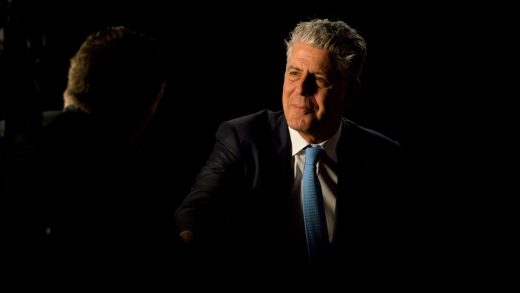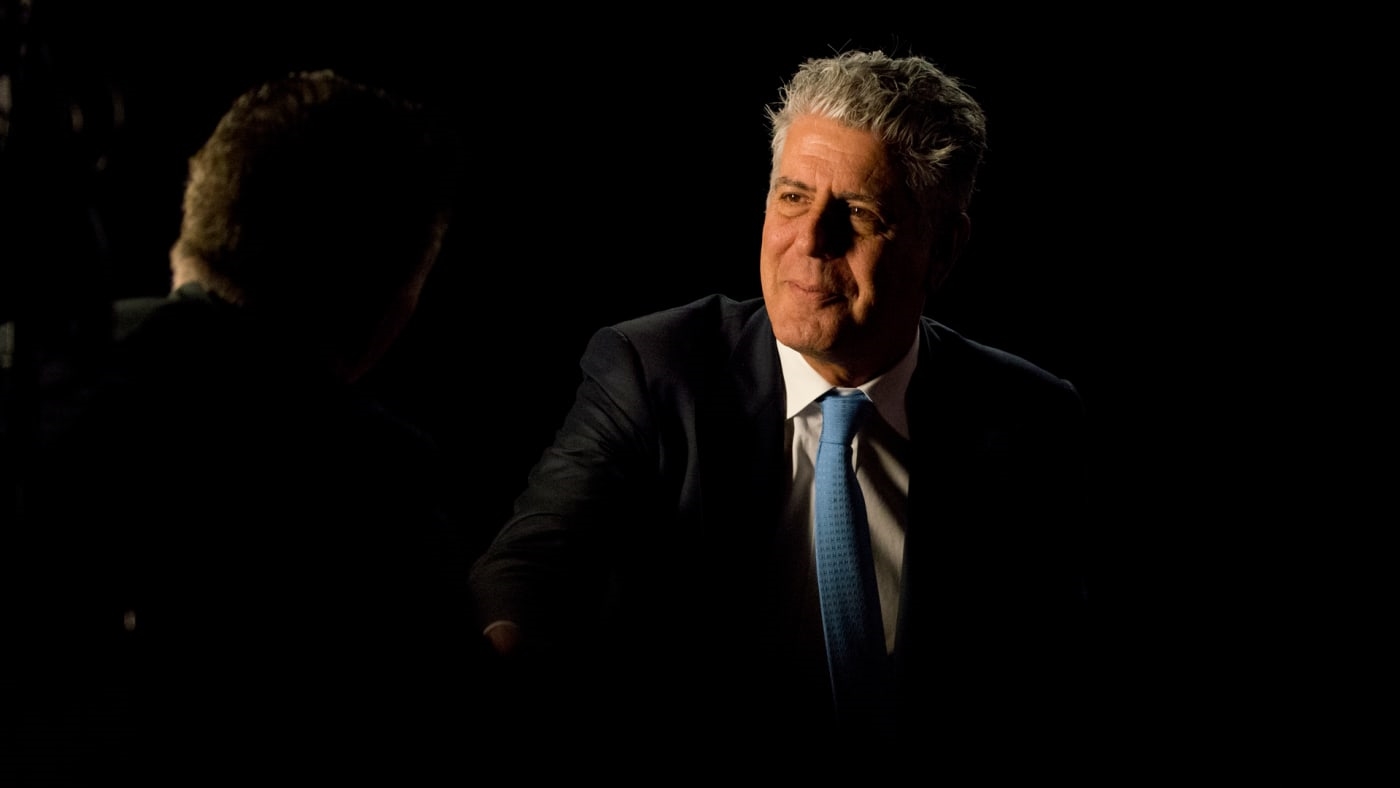Anthony Bourdain, a great journalist, would deplore the clickbait coverage of his death
Just hours after the news broke this morning that the chef, author, and TV personality Anthony Bourdain had committed suicide, outlets began scrambling for a piece of SEO cache. Digiday reporter Kerry Flynn noticed that Newsweek’s approach was particularly egregious:
This is actually insane. Talk about flooding the zone with disgusting clickbait cc @newsweek pic.twitter.com/pw5SbNGmX1
— Kerry Flynn ???? (@kerrymflynn) June 8, 2018
Sadly, Newsweek isn’t a shameful exception to the dignified rule across digital media. It’s Content Mill 101: A famous person passes away, so you write the “Who is [deceased person]?” story, and if they’ve got a well-known relative, you follow that up with “Who is [deceased person’s relative]?” ideally with the most scandalous or sensational angle. It’s the same pattern with non-celebrities, too. Earlier this spring, when Noor Salman was acquitted of aiding and abetting terrorism, news outlets had already laid strong foundations on Google for driving traffic to the latest turn in that story; the widow of Pulse nightclub shooter Omar Mateen had already been sufficiently covered that as of this morning, the second most-suggested search after typing his own name into Google was “omar mateen wife.”
As one Twitter user commented, the race to craft SEO-ready content is a natural consequence of the distribution landscape that ad-driven platforms like Google and Facebook largely control. Media outlets need to play by those tech giants’ rules in order to survive:
Don’t blame Newsweek, blame Google for quantifying news beyond what’s reasonablr. Google is world’s No. 1 ad agency. Imagine newspapers submitting stories to ad agencies.
— Ward Harkavy (@WHarkavy) June 8, 2018
And for the most part, it really is a game of survival rather than one to win. Even one-time “new media” prodigies like Medium, BuzzFeed, and Snap have struggled to navigate the terrain that their content must cross before reaching the eyeballs their advertisers pay them for. Lately, Amazon has been battling Google and Facebook for control of that valuable territory; its ad business is surging even while Google has eked out an early advantage in adjusting to European GDPR regulations. But these skirmishes amount to much the same thing for news outlets: Silicon Valley juggernauts duking it out for gobs of advertising revenue—of which media companies are left to fight for the crumbs.
This predicament only sets into relief Bourdain’s accomplishments as a journalist. The clickbait gold-rush is a sordid and cynical state of affairs, one that it’s easy to imagine Bourdain deriding with voluptuous profanity. But Bourdain was a self-described cynic, too, one whose knack for pointing out pretense, snobbery, and artifice made him an extraordinary reporter. In Parts Unknown, his acclaimed CNN series, Bourdain was a masterful interviewer, routinely asking sharp questions and then sitting back to just listen.
Watch an episode or two this weekend, and when you do, watch his face after he finishes speaking. His customary response is little more than a clear gaze and maybe a few short, rapid nods. There’s no theatrically cocked head or arched brows, no searching stare, no follow-up questions like, “What was going through your head at that moment?” Bourdain doesn’t probe for sentiment or sensation the way some news outlets did in covering his death this morning. Instead, he took a hard-nosed intolerance for bullshit—endemic to the white working-class New Jersey of my parents’ generation—and turned it into an invitation that truly great journalists extend open-handedly to everyone they meet, wherever they meet them, and especially when it’s hardest: What the hell do I know? You tell me.
Fast Company , Read Full Story
(56)



